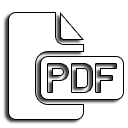Reinterpreting Genesis 1:28–30 from a Bioregionalism Perspective and Its Implications for the Ecological Crisis
DOI:
https://doi.org/10.59002/jtp.v5i1.149Keywords:
bioregionalism, Genesis 1:28-30, ecological crisisAbstract
The problem of natural exploitation is currently increasingly prevalent. In addition, there is a mistake in understanding the text of the scriptures, especially the three words in Genesis 1:28-30: fill, subdue, and have dominion. These three words are often considered to be the cause of natural exploitation from a theological perspective. This background encourages the author to provide a pro-ecological interpretation of the text of Genesis 1:28-30, using a bioregionalism perspective. The research method employed in this paper is a descriptive qualitative approach, as described by Daniel K. Listijabudi's hermeneutic perspective. The results of the study indicate that, by adopting a bioregional perspective in interpreting the text of Genesis 1:28-30, the command to 'fill, subdue, and have dominion' is not an exploitative one. This command utilizes nature guided by ecological insight and is oriented to its ecological implications
References
Bible Works. (2015).
Borrong, R. P. (2022). BATU PARE: Norma Mengelolah Lahan Pertanian Masyarakat Kalumpan. In Z. J. L. P. R. M. Ngelow (Ed.), TEOLOGI TANAH: Perspektif Kristen terhadap ketidakadilan Sosio-ekologis di Indonesia (pp. 123–146). Jakarta: BPK Gunung Mulia.
Budiman, S., & Objantoro, E. (2021). Implikasi Makna Sabat bagi Tanah dalam Imamat 25:1-7 bagi Orang Percaya. Jurnal Teruna Bhakti, 3(2), 110–120. Retrieved from https://doi.org/10.47131/jtb.v3i2.60
Cappuccio, S. M. (2009). Bioregionalism as a new development paradigm. International Conference of Territorial Intelligence, 1–9. Salerno,Italia. Retrieved from https://shs.hal.science/halshs-00533625v1
Darius, G. (2017). Membaca dan Menafsir Kejadian 1:26-28 dalam Fungsi Kosmis Budaya Toraja untuk Membangun Paradigma Misi Kontekstual-Ekologis. MELO: Jurnal Studi Agama-Agama, 2(1), 36–46.
Evanoff, R. (2017). Bioregionalism: A Brief Introduction and Overview. The Aoyama Journal of International Politics, Economics and Communication, (99), 55–65. Retrieved from https://www.sipec.aoyama.ac.jp/uploads/03/Bioregionalism A Brief Introduction and Overview.pdf
Karlau, S. A. (2022). PENCIPTAAN MANUSIA SEBAGAI REPRESENTATIF ALLAH UNTUKMEWUJUDKAN MANDAT BUDAYA BERDASARKANKEJADIAN 1:26-28. Jurnal Teologi Dan Misi, 5(1), 122–138.
Kaseke, F. Y. M. (2020). Sabat dan Pandemic Covid 19 Perspektif Eco-teologi Kristen. Jurnal Scripta Teologi Dan Pelayanan, 9(1), 23–31. Retrieved from https://ejournal.stte.ac.id/index.php/scripta/article/view/110
Kementerian Lingkungan Hidup dan Kehutanan. (2023). Indonesia Serukan 3 Isu Lingkungan dan Pembangunan Berkelanjutan di AALCO ke-61.
Keraf, A. S. (2014). Filsafat Lingkungan Hidup: Alam sebagai Sebuah Sistem Kehidupan. Yogyakarta: PT KANISIUS.
Koswandy, G. G. L. (2023). Habakuk Sipenghayat Penderitaan Umat. Yogyakarta: PT KANISIUS.
Lee, A. C. C. (2008). Cross-Textual Hermeneutics and Identity in Multi-Scriptural Asia. In S. C. H. Kim (Ed.), Christian Theology in Asia (pp. 179–204). New York: Cambridge University Press.
Listijabudi, D. K. (2018a). Bukankah Hati Kita Berkobar-kobar? Yogyakarta: Interfidei.
Listijabudi, D. K. (2018b). Pembacaan Lintas Tekstual: Tantangan Berhermeneutik Alkitab Asia (1). Gema Teologi, 3(2), 207–230. Retrieved from https://doi.org/10.21460/gema.2018.32.411
Listijabudi, D. K. (2019). Bergulat di Tepian: Pembacaan Lintas Tekstual Dua Kisah Mistik (Dewa Ruci & Yakub Yi Yabok) untuk Membangun Perdamaian. Jakarta: BPK Gunung Mulia.
Olusola, A. I., & Temitope, O. C. (2019). Christians, Environment and Divine Injunction in Genesis 1:28: A Case for Environmental Sustainability. The American Journal of Biblical Theology, 20(2), 1–11. Retrieved from https://www.biblicaltheology.com/Research/OlusolaAI02.pdf
Panjaitan, F., & Mandowen, S. D. Y. (2023). HUTAN ADALAH I BU BAGI MANUSIA: Titik Jumpa Ekoteologis antara Kejadian 1:28 dengan Suku Wate. Jurnal Teologi Dan Musik Gereja, 3(1), 33–45.
Pasaribu, A. G., Sipahutar, R. C., & Hutabarat, E. H. (2022). Imago Dei and ecology: Rereading Genesis 1:26–28 from the perspective of Toba Batak in the ecological struggle in Tapanuli, Indonesia. Verbum et Ecclesia, 43(1), 1–7. Retrieved from https://doi.org/10.4102/ ve.v43i1.2620%0A
Prabowo, P. D., & Malela, A. (2003). Konsep Prokreasi Dalam Kejadian 1:26 - 28 Sebagai Jawaban Terhadap Gaya Hidup Childfree. Jurnal Teologi Kristen, 5(1), 16–27.
Saputra, J. A. (2024a). Kecerdasan Agraris: Reinterpretasi Kejadian 1:28-30;2:15 dari Perspektif Teologi Agraria. Wawasan, 5(2), 144–159. Retrieved from https://doi.org/10.53800/0g3xs634
Saputra, J. A. (2024b). Teologi Istirahat dan Hustle Culture: Teologi Istirahat dalam Keluaran 23:12 dan Implikasinya terhadap Fenomena Hustle culture. Track, 3(2), 50–72. Retrieved from https://doi.org/10.61660/track.v3i2.186
Singgih, E. G. (2020). Agama dan Kerusakan Ekologi: Mempertimbangkan “Tesis White” dalam Konteks Indonesia. Gema Teologika, 5(2), 113–136. Retrieved from https://doi.org/10.21460/gema.2020.52.614
Toynbee, A. (1972). The Religious Background of the Present Environmental Crisis. International Journal of Environmental Studies, 3(1–4), 141–146. Retrieved from https://doi.org/10.1080/00207237208709505
White Jr, L. (1967). The Historical Roots of Our Ecologic Crisis. Science, 155(3767), 1203–1207. Retrieved from http://www.jstor.org/stable/1720120
Downloads
Published
How to Cite
Issue
Section
License
Copyright (c) 2025 Delviero_

This work is licensed under a Creative Commons Attribution 4.0 International License.













